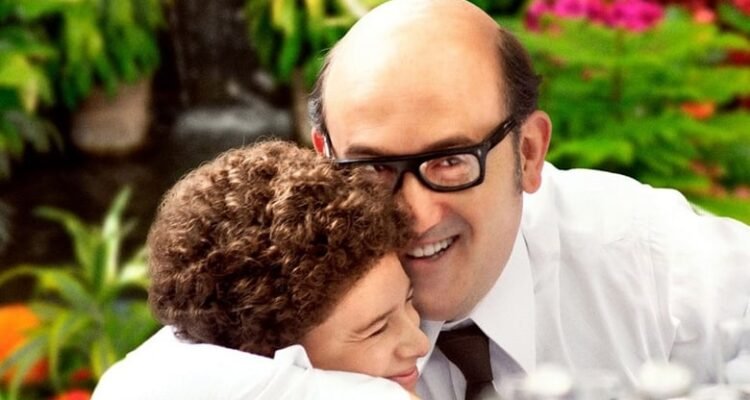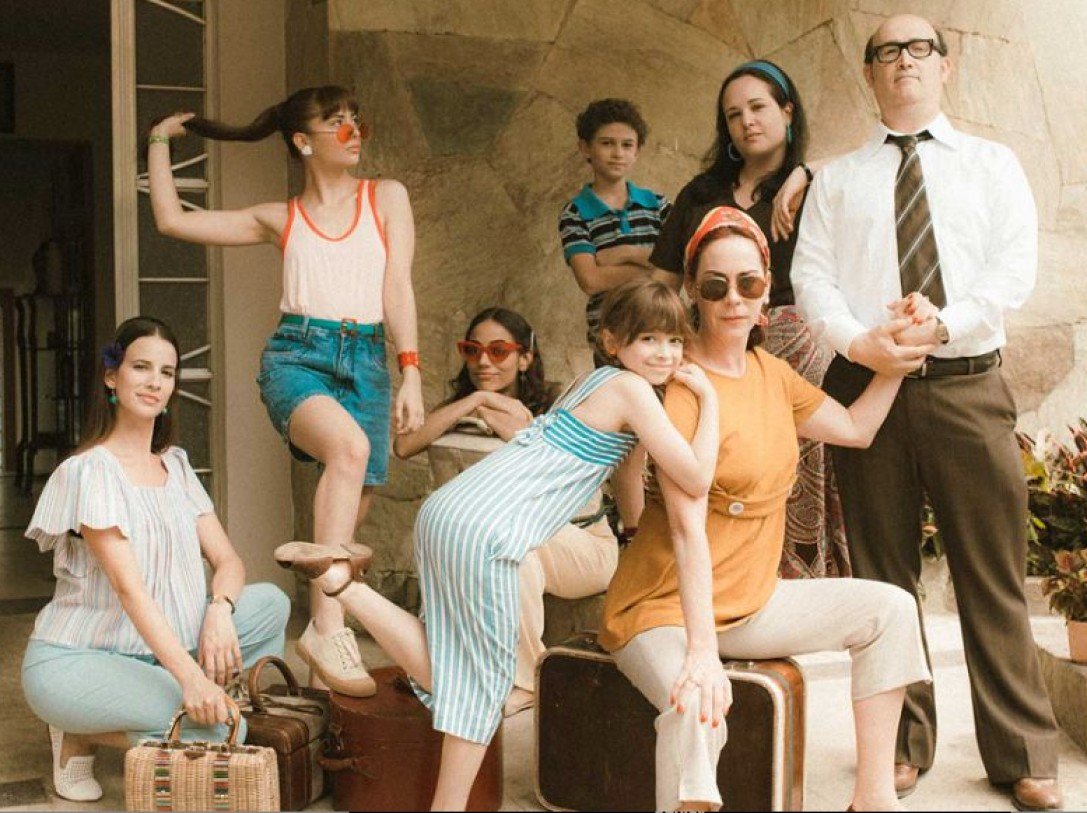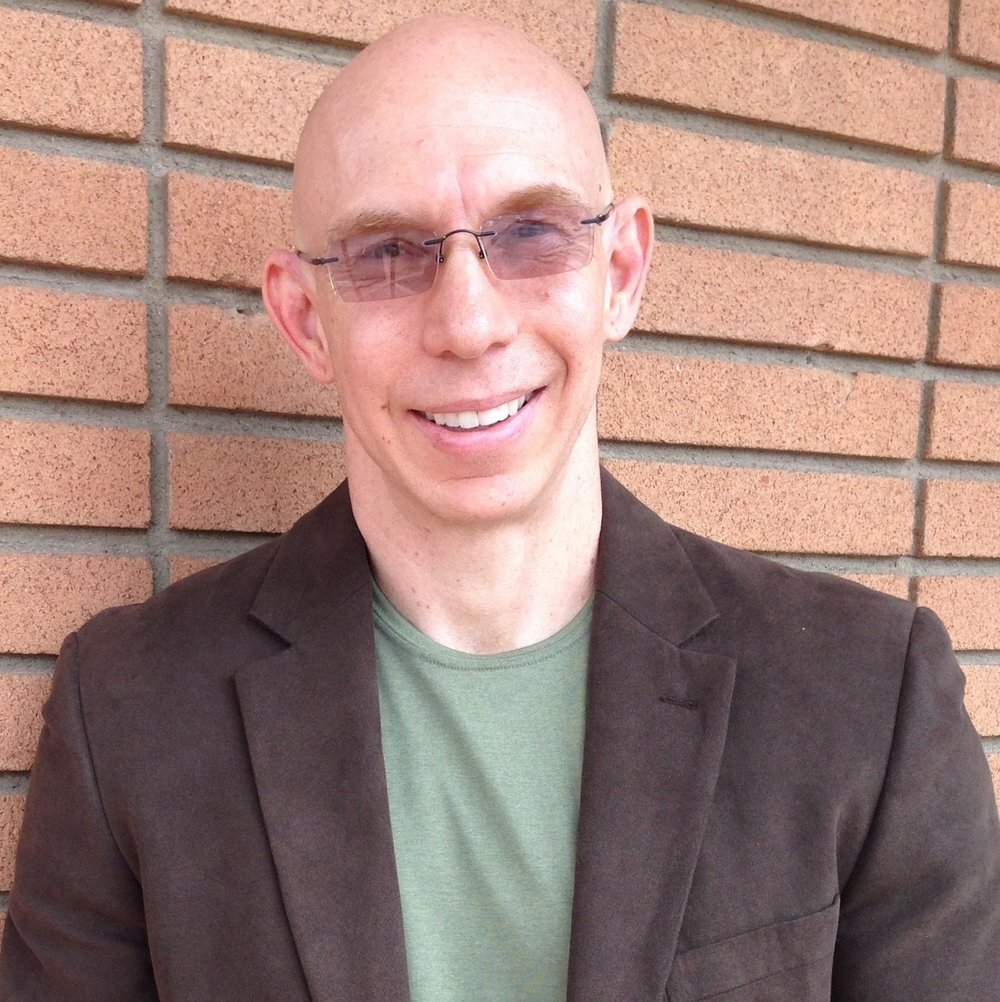Directed by: Fernando Trueba
Written by: David Trueba, based on Hector Abad Faciolince’s book
Starring: Javier Camara, Juan Pablo Urrego, Nicolas Reyes Cano, Maria Tereza Barreto, and Kami Zea
Runtime: 136 minutes
‘Memories of My Father’: You won’t forget this touching and frank memoir
“What a father says to his children is not heard by the world, but it will be heard by posterity.” – author Jean Paul
For many of us – from all walks of life – our dads are heroes. See also: confidants, educators, mentors, and philosophers, but don’t forget disciplinarians and roadblocks. Naturally, the latter two “occupations” are designed for our well-being, in the short-term, years down the road, or both.
For Hector Abad Faciolince - a Colombian journalist and author - it took almost 20 years after his father’s death to write “El Olvido que Seremos”, a 2006 memoir about his dad, Hector Abad Gomez. In 2012, Faciolince’s book was published in English, “Oblivion: A Memoir”, and now, director Fernando Trueba (“Belle Epoque” (1992), “The Queen of Spain” (2016)) adapted Faciolince’s dear and candid memories into a feature film.
In fact, “Memories of My Father” became Colombia’s Best International Feature Film entry for the 2021 Oscars. With so many chronicles and accolades, Hector Abad Gomez was a remarkable man. Trueba’s heartfelt, sincere, but blunt movie conveys this notion – through Faciolince’s and his country’s convictions – on the silver screen.
He was a physician, professor, and outspoken human rights leader. He was loved and respected by so many in the Medellin community, including his students, everyday folks, and his family.
Admittedly, this critic didn’t know the man walking into the movie, but I felt a deep respect for both father and son while marching out of the theatre.
I suspect that you will too.
David Trueba’s – Fernando’s brother - wrote the screenplay, and the pair split their film into two periods: 1971 and the 1980s, beginning in 1983. The 70s and 80s seem to share the 136-minute runtime equally; however, Fernando and cinematographer Sergio Ivan Castano make a curious and welcome judgment in presenting life in both eras.
At the outset, this story begins in 1983 Turin, Italy in black and white, as Hector Abad Gomez’s son Hector (Juan Pablo Urrego) – in his 20s - watches an infamous/famous Brian De Palma movie with his girlfriend. Certainly, the opening locale, the film within a film, and the color palette are surprises. Yet, fairly quickly, the story rolls back to 1971, and this cinematic time machine carries magical powers because the events in yesterdecade embrace rich, bright 1970s hues reminiscent of “The Partridge Family” or “Rowan & Martin’s Laugh-In” and a bold acoustic guitar version of “Ruby Tuesday”.
(Note: to avoid confusion, this review will refer to Hector Sr. as Abad, and Hector Jr. as Hector.)
These are the days of Hector’s youth when he (Nicolas Reyes Cano) was 12 or 13, a period of (mostly) warm recollections of his sisters, mother, father, and extended kin.
No doubt, the Trueba brothers and the cast depict a lively, loving household, and Abad (Javier Camara) is front and center. Camara exudes a commanding but sensitive outlook for his real-life on-screen character. Camara’s Abad is a big, imposing presence that emits security and comfort, but he’s dutiful and affectionate, and all of these qualities set an inviting tone for the rest of his family.
There is peace and warmth here. We feel all of it, and so does young Hector.
Cano plays Hector with curiosity and attentiveness. On several occasions, the screenplay features and hones in on select everyday exchanges between father and son, where Abad donates life lessons to his boy that will spur smiles from the audience for their close relationship. Trueba expressly lays a solid, welcoming foundation of good feelings during the first act, but he hints (and later portrays) treacherous outside forces – in the form of Colombia’s political and societal upheaval – that threaten the country’s and Abad’s security.
As a cinematic memoir, the filmmakers don’t have the luxury to include all of Hector’s years between the ages 12 to 25 for a 2+ hour movie, so the script makes a distinct break where we don’t experience his teenage years. Instead, we skip to Hector’s 20s, but the father-son dynamic has changed.
Abad and Hector have drifted apart a bit, and as an audience, we’re compelled to accept it without complete understanding. So, our cinematic experience is fractured, and that’s by design, possibly due to time constraints or to directly contrast “the good old days” versus “current hard realities.” Still, the tension feels forced at times, including a specific, peculiar argument on a winding highway.
However, Trueba and his team capture carefully-crafted and nuanced emotional beats in the third act that indeed memorialize Hector Abad Gomez. Ultimately, these moments plus the groovy vibes from 1971 are the most important.
In Juan Forero’s Aug. 24, 2012 “The Washington Post” article, he writes, “With his memoir, (Hector Abad Faciolince) said he believes he is also doing something his father would have wanted, rescuing his memory from oblivion.”
No question, this touching and frank film rescues his memory as well.
Jeff’s ranking
2.5/4 stars















